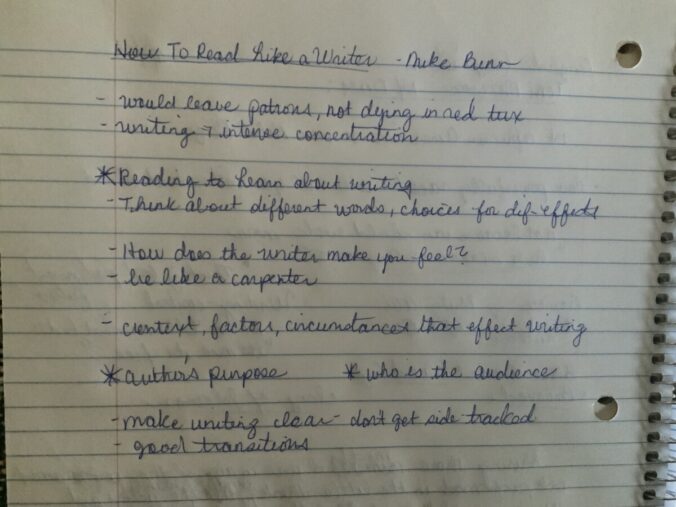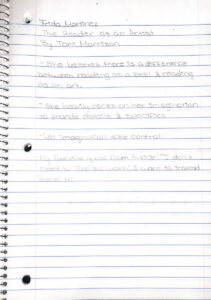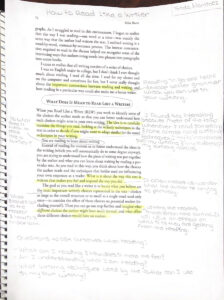As authors, we have written many pieces for school assignments, have written responses through social media, or have attended events that ask you to write your thoughts or opinions on a certain topic. ( E.g. peer groups, social events, ratings, etc.) I usually write my feelings in a journal, and try to write a sleep log where I write 3 things I’m grateful for, 3 things I need to do, and 3 things that bother me. Jotting down my thoughts has helped me stay sane in difficult times, while the sleep log is supposed to ease my mind before I go to bed, and strengthen my focus throughout the day. This will help me write better in college, and have a better understanding when reading other passages.
From Bunn’s article I would like to try to be more direct in my message towards my audience, work on my transitions, and be more relatable to readers. I would like for people to really connect and enjoy my writing.







Recent Comments